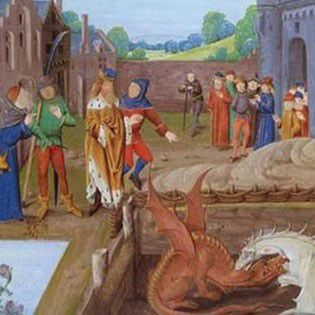The World in the Year 1000: When Globalization Began
- Dates
- Wednesday 17 October 2018 (16:15-18:00)
- Contact
All are welcome to attend
 WORKSHOP LEADER - Prof Valerie Hansen
WORKSHOP LEADER - Prof Valerie Hansen
The Institute of Advanced Studies is delighted to welcome Distinguished Visiting Fellow Prof Valerie Hansen from Yale to present a paper as part of the Centre for the Study of the Middle Ages’ (CESMA) Seminar series 2018/19. All staff and students are welcome to attend.
When did globalization first get under way? It became obvious sometime in the 1970s and 1980s, when people around the world could buy goods from almost anywhere and travel virtually anywhere. Most people (including historians) believe this globalization process began in 1492, the year that Columbus’s first voyage triggered a massive intercontinental exchange of plants, animals, commodities, and human populations.
While 1492 had an immediate impact, it was not the real start of globalization. Nearly 500 years earlier, for example, the Viking explorer Leif Erikson and his followers landed on the northern tip of the Canadian island of Newfoundland in the year 1000. All around the world at that time, goods and people began to move among regions not previously in contact. Islamic travellers visited sub-Saharan Africa, India, and northern China, just as Arab, Indian, and Chinese ships carried large quantities of incense and fragrant wood to multiple Indian Ocean ports. These exchanges opened up the conduits that goods and peoples poured into after 1492.
Hansen’s current book project – The Interconnected World of the Year 1000: The Beginnings of Globalization – explores the goods, people, and ideas that travelled between regions in a time with no mechanised transport.